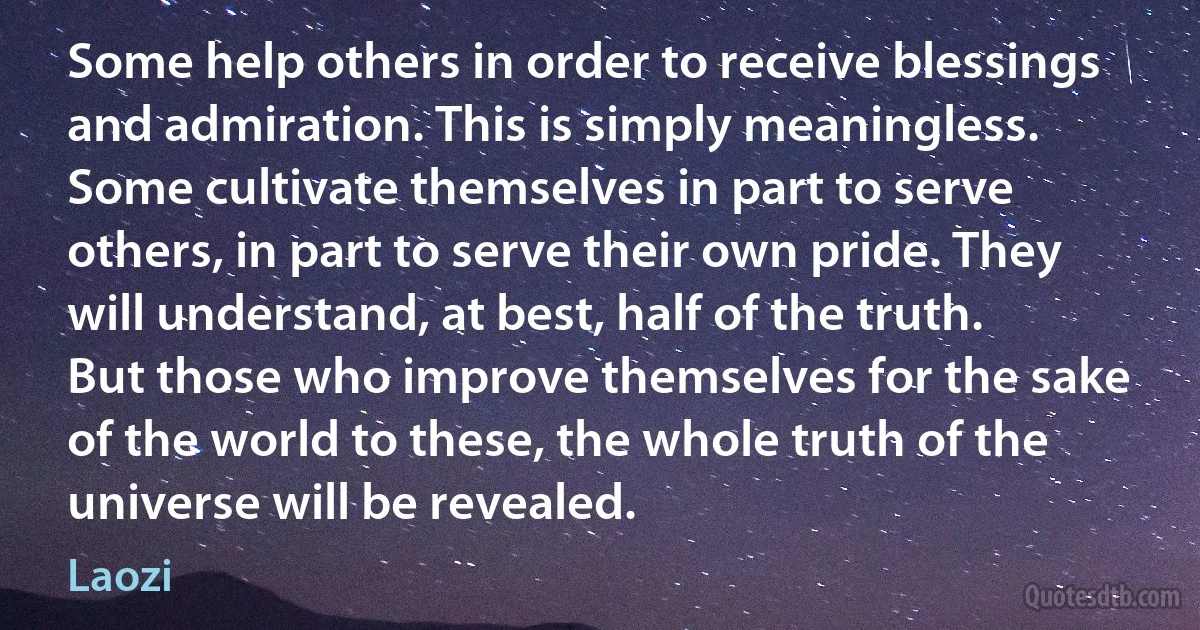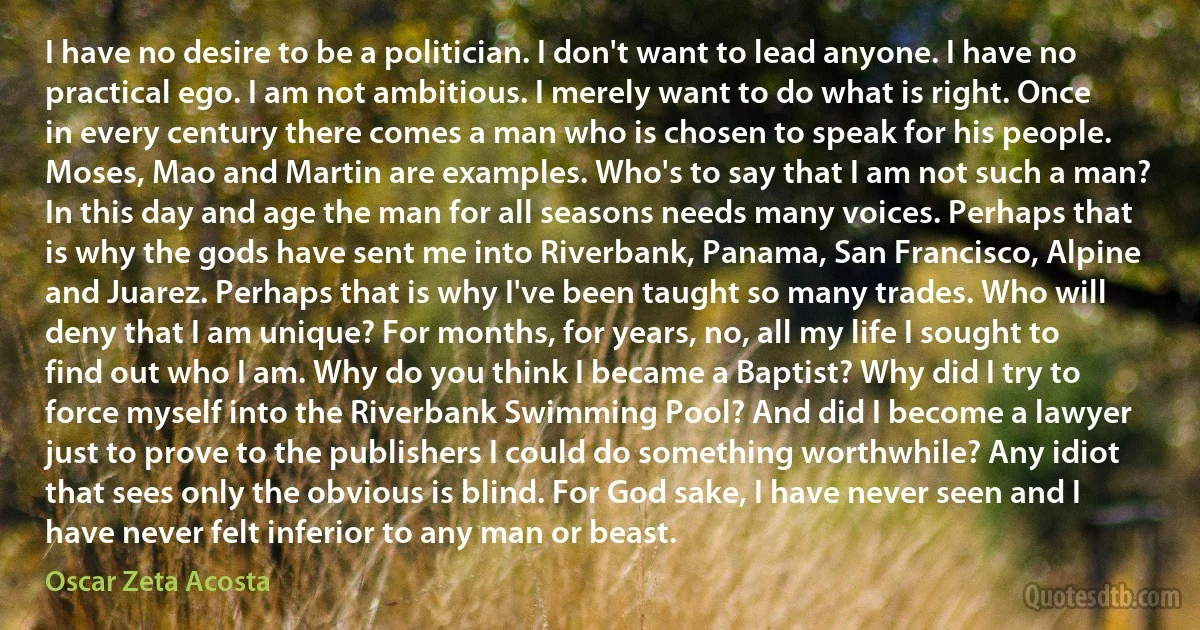Sake Quotes - page 48
Practical life is not necessarily directed toward other people, as some think; and it is not the case that practical thoughts are only those which result from action for the sake of what ensues. On the contrary, much more practical are those mental activities and reflections which have their goal in themselves and take place for their own sake.

Aristotle
Let me not be understood as saying that there are no bad laws, nor that grievances may not arise for the redress of which no legal provisions have been made. I mean to say no such thing. But I do mean to say that although bad laws, if they exist, should be repealed as soon as possible, still, while they continue in force, for the sake of example they should be religiously observed.

Abraham Lincoln
It is not merely for to-day, but for all time to come that we should perpetuate for our children's children this great and free government, which we have enjoyed all our lives. I beg you to remember this, not merely for my sake, but for yours. I happen temporarily to occupy this big White House. I am a living witness that any one of your children may look to come here as my father's child has.

Abraham Lincoln
The most dangerous thing you can do is to take any one impulse of your own nature and set it up as the thing you ought to follow at all costs. There is not one of them which will not make us into devils if we set it up as an absolute guide. You might think love of humanity in general was safe, but it is not. If you leave out justice you will find yourself breaking agreements and faking evidence in trials "for the sake of humanity", and become in the end a cruel and treacherous man.

C. S. Lewis
The Individual living in this unity has a moral "life; possesses a value that consists in this substantiality alone. Sophocles in his Antigone, says, "The divine commands are not of yesterday, nor of to-day; no, they have an infinite existence, and no one could say whence they came." The laws of morality are not accidental, but are the essentially Rational. It is the very object of the State that what is essential in the practical activity of men, and in their dispositions, should be duly recognized; that it should have a manifest existence, and maintain its position. It is the absolute interest of Reason that this moral Whole should exist; and herein lies the justification and merit of heroes who have founded states, however rude these may have been. In the history of the World, only those peoples can come under our notice which form a state. For it must be understood that this latter is the realization of Freedom, i.e. of the absolute final aim, and that it exists for its own sake.

Georg Wilhelm Friedrich Hegel
If you punish a child for being naughty, and reward him for being good, he will do right merely for the sake of the reward; and when he goes out into the world and finds that goodness is not always rewarded, nor wickedness always punished, he will grow into a man who only thinks about how he may get on in the world, and does right or wrong according as he finds either of advantage to himself.

Immanuel Kant
The very reason [the Greeks] got so far is that they knew how to pick up the spear and throw it onward from the point where others had left it. Their skill in the art of fruitful learning was admirable. We ought to be learning from our neighbors precisely as the Greeks learned from theirs, not for the sake of learned pedantry but rather using everything we learn as a foothold which will take us up as high, and higher, than our neighbor.

Friedrich Nietzsche
We will freedom for freedom's sake, in and through particular circumstances. And in thus willing freedom, we discover that it depends entirely upon the freedom of others and that the freedom of others depends upon our own. Obviously, freedom as the definition of a man does not depend upon others, but as soon as there is a commitment, I am obliged to will the liberty of others at the same time as my own. I cannot make liberty my aim unless I make that of others equally my aim.

Jean-Paul Sartre
Our situation on this earth seems strange. Every one of us appears here involuntarily and uninvited for a short stay, without knowing the whys and the wherefore. In our daily lives we only feel that man is here for the sake of others, for those whom we love and for many other beings whose fate is connected with our own. I am often worried at the thought that my life is based to such a large extent on the work of my fellow human beings and I am aware of my great indebtedness to them.

Albert Einstein
No one should be under the illusion that negotiations for the sake of negotiations always advance the cause of peace. If for lack of preparation they break up in bitterness, the prospects of peace have been endangered. If they are made a forum for propaganda or a cover for aggression, the processes of peace have been abused.

John F. Kennedy
An intellectual ... lives for ideas-which means that he has a sense of dedication to the life of the mind which is very much like a religious commitment. This is not surprising, for in a very important way the role of the intellectual is inherited from the office of the cleric: it implies a special sense of the ultimate value in existence of the act of comprehension. Socrates, when he said that the unexamined life is not worth living, struck the essence of it. We can hear the voices of various intellectuals in history repeating their awareness of this feeling, in accents suitable to time, place and culture. "The proper function of the human race, taken in the aggregate,” wrote Dante in De Monarchia, "is to actualize continually the entire capacity possible to the intellect, primarily in speculation, then through its extension and for its sake, secondarily in action.”.

Richard Hofstadter



